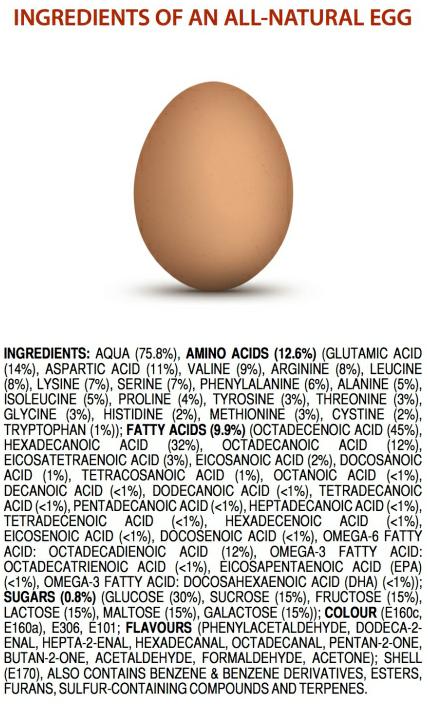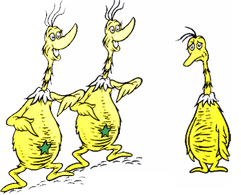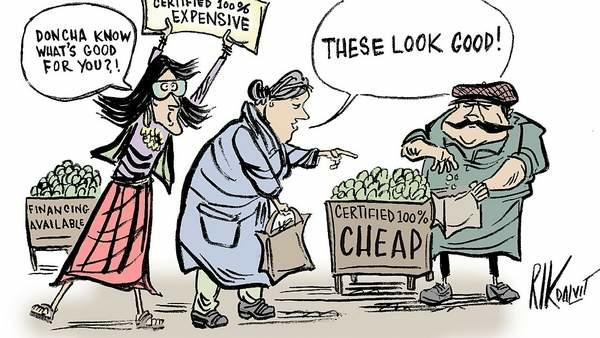Almost anything can be free-range, for example. If a chicken can poke their head through a hole, well, that's free range. And cage free can still be jammed in tighter than a United Airlines cross-country flight, it just can't be in a cage.
A survey conducted by pasture-raised egg company Vital Farms on QuickTake.com in May 2014 sampled opinions of nearly 670 Americans, ages 21-54, and found that no one really knows the difference. Hypothesis: they just know it must be better because they have been educated by advertising. What difference would it make if they did know? The definitions are arbitrary. 50 percent of respondents look for the free-range label while 48 percent look for cage-free and 47 percent look for organic. Does that add up to 145 percent to you? You are not an ethical egg shopper if you ask those kinds of questions but I assume they can all have multiple labels, sort of like how boxing can have one champion for three federations across four weight classes.
Only 24 percent sought out a pasture-raised label and I confess I had never heard of it before the company contacted me with their survey results. But, they note, when asked to describe “free-range” and “cage-free,” people taking the survey actually described pasture-raised eggs. 62 percent thought ir was chickens roaming free.
Not so. Pasture-raised hens, the company says, are each given 108 square feet of outdoor space to frolic in and and have unlimited daytime access to sunlight and grass. They call it a 'salad and exercise' regimen.
You know what we call those chickens in this part of California? Hawk bait. Those critters would be gone in a week unless there is wire overhead, in which case they are not really cage free. Chicken coops were not created to mass produce eggs, they were created to prevent dead chickens.
Outside the somewhat meaningless "organic" designation, eggs have no standard label nomenclature, thus the reason for this corporate maneuvering and competition for dollars. If eggs actually did require accurate labels, free-range, cage-free and pasture-raised would all be identical. They would look like this:

What? Chemicals? But range-free eggs have no chemicals! Sure, if counting organic sheep that way helps you sleep, but science reality has proven differently. Credit and link: James Kennedy
But egg farmers don't want real labels, they just want to obtain a competitive advantage among the wealthy elites who shop at Whole Foods. Scientifically, a new label is just a Sneetch with more stars:

We're better because we paid to have a special label. Credit: Random House.
I predict a bright future for this movement. If Chobani can become a billion-dollar company bragging that there is no scientific reason to buy their overpriced yogurt, why not market more ethical chickens? And the focus on wealthy elites at Whole Foods is smart because they clearly have money and don't care about evidence or data.
But for the majority of the population, the most important label rightfully remains this one:


Credit and link: Capital Press





Comments